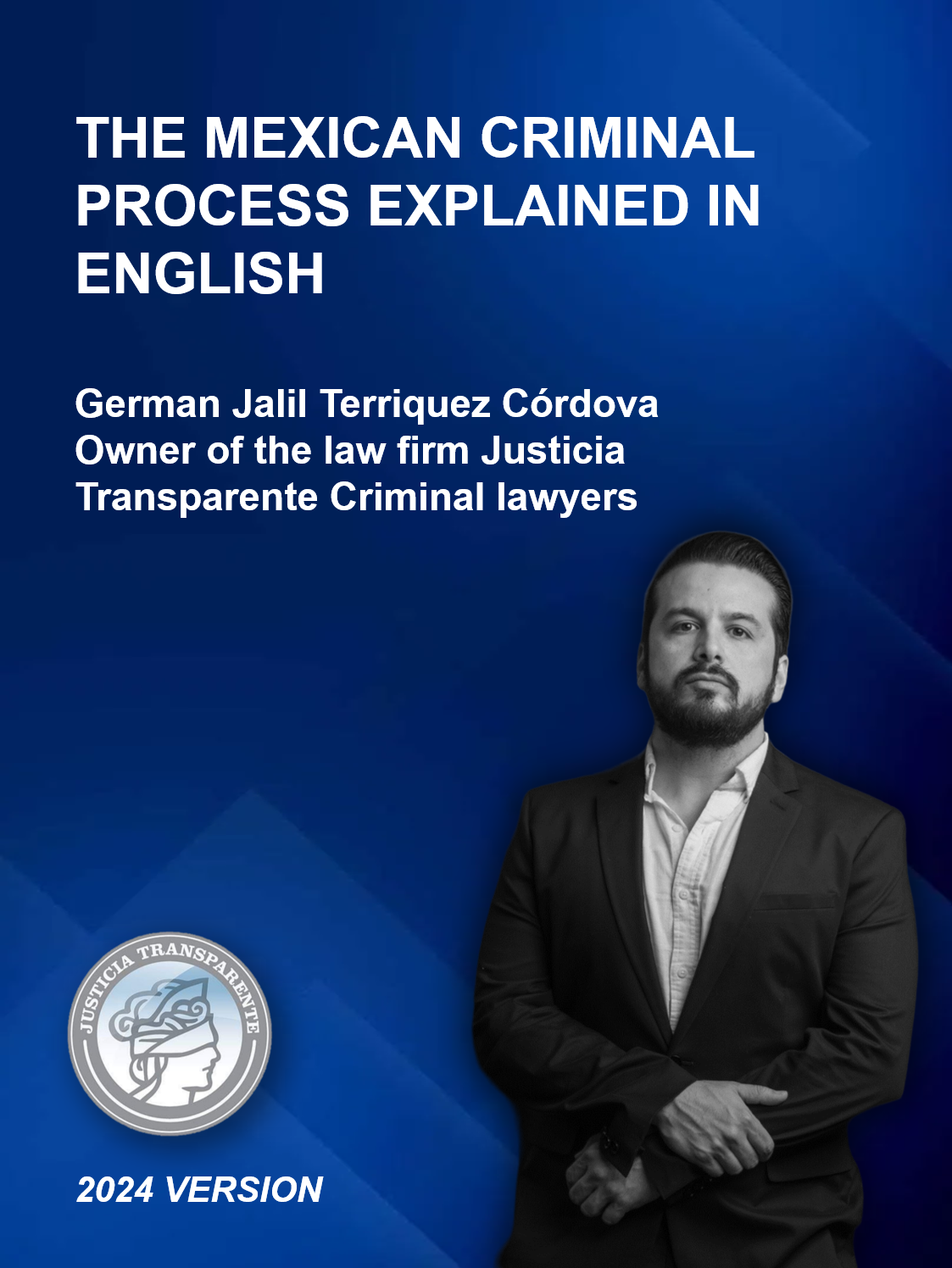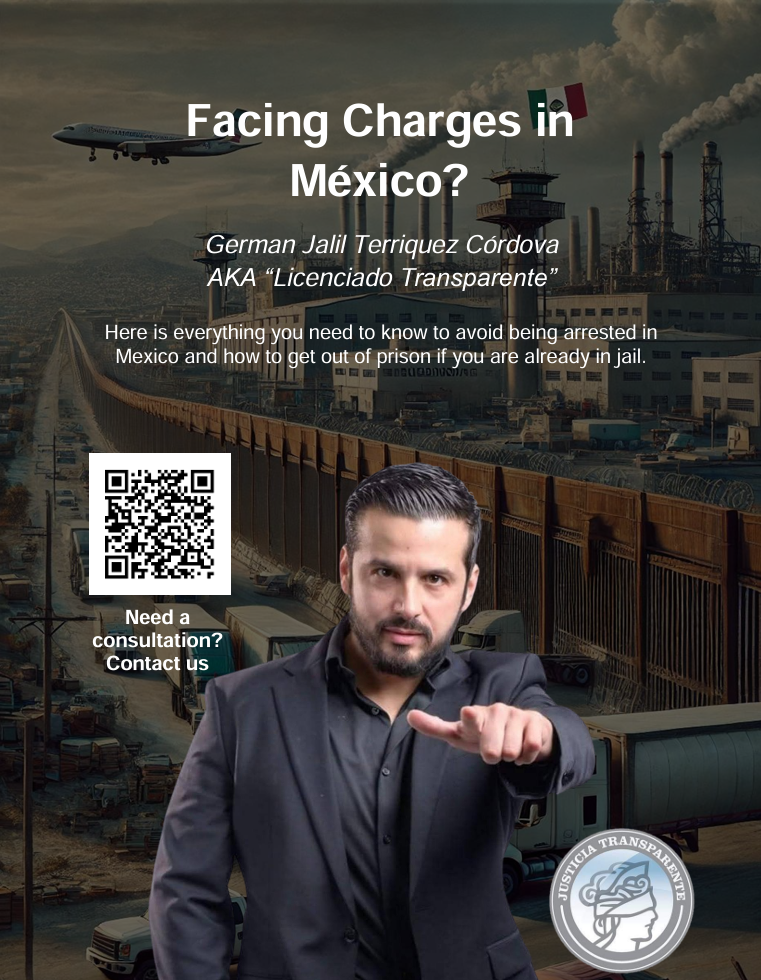What to do if I am stopped by the police for a crime? 6 basic things you should know.
In this blog we will talk about what you have to do if you are detained by the police for committing a crime, we will also explain what are the situations for which you can be arrested, the procedure that you have to take and how you can proceed.
1. For what reasons can the police arrest you?
There are some crimes that merit informal preventive detention, which is established in both the Political Constitution of the United Mexican States, as well as the National Code of Criminal Procedures, which is why the police could detain you to refer you to the competent authority. This means that a policeman can have the person when he has a judicial or ministerial order.
2. What crimes are those that merit pre-trial detention in an informal way?
In accordance with the provisions of article 167 of the National Code of Criminal Procedures:
Crimes that merit informal preventive detention are considered those provided for in the Federal Criminal Code, as follows:
I. Intentional homicide provided for in articles 302 in relation to 307, 313, 315, 315 Bis, 320 and 323;
II. Genocide, provided for in Article 149 Bis;
Accused a relative of a crime in Mexico? Do you need to know if it is a crime to bring weapons into Mexico? Do you need to know if it is a crime to bring marijuana into Mexico? The prosecutor is accusing me of having committed a crime that I did not commit? Has your loved one been in jail in Mexico for years?
If you are in one of these situations, hire an online consultation.
Do you want to avoid an arrest warrant against you in Mexico?
III. Violation provided for in articles 265, 266 and 266 Bis;
IV. Treason against the fatherland, provided for in articles 123, 124, 125 and 126;
Visit our online store
One of our products can help you
V. Espionage, provided for in articles 127 and 128;
SAW. Terrorism, provided for in articles 139 to 139 Ter and international terrorism provided for in articles 148 Bis to 148 Quáter;
VII. Sabotage, provided for in article 140, first paragraph;
VIII. Those provided for in articles 142, second paragraph and 145;
IX. Corruption of persons under eighteen years of age or of persons who do not have the capacity to understand the meaning of the act or of persons who do not have the capacity to resist it, provided for in article 201; Pornography of people under eighteen years of age or of people who do not have the capacity to understand the meaning of the fact or of people who do not have the capacity to resist it, provided for in article 202;
Sex tourism against people under eighteen years of age or people who do not have the capacity to understand the meaning of the event or people who do not have the capacity to resist it, provided for in articles 203 and 203 Bis; Leniency of persons under eighteen years of age or of persons who do not have the capacity to understand the meaning of the event or of persons who do not have the capacity to resist it, provided for in article 204 and Pederasty, provided for in article 209 Bis;
X. Trafficking of minors, provided for in article 366 Ter; XI. Against health, provided for in articles 194, 195, 196 Ter, 197, first paragraph and 198, first part of the third paragraph;
XII. Sexual abuse or violence against minors, provided for in articles 261 in relation to 260;
XIII. Femicide, provided for in article 325;
XIV. Robbery at home, provided for in article 381 Bis;
XV. Abusive exercise of functions, provided for in sections I and II of the first paragraph of article 220, in relation to its fourth paragraph;
XVI. Illicit enrichment provided for in article 224, in relation to its seventh paragraph, and
XVII. Theft from cargo transportation, in any of its modalities, provided for in articles 376 Ter and 381, section XVII.

Crimes that merit informal preventive detention are considered those provided for in the Fiscal Code of the Federation, as follows:
I. Contraband and its comparable, in accordance with the provisions of articles 102 and 105, sections I and IV, when they are subject to the penalties provided for in sections II or III, second paragraph, of article 104, exclusively when they are qualified;
II. Tax fraud and its equivalent, in accordance with the provisions of articles 108 and 109, when the amount of the fraud exceeds 3 times the provisions of section III of article 108 of the Federal Tax Code, exclusively when they are qualified, and
III. The issuance, sale, disposal, purchase or acquisition of tax receipts that cover non-existent, false operations or simulated legal acts, in accordance with the provisions of article 113 Bis of the Federal Tax Code, exclusively when the figures, quantity or value of tax receipts exceed 3 times what is established in section III of article 108 of the Federal Tax Code.
3. What else could the police detain me for?
A police officer can arrest a person in flagrante delicto, and this can be done without a court order, this can be found established in article 146 of the National Code of Criminal Procedures.
Article 146. Cases of flagrante delicto
A person may be detained without a court order in the event of flagrante delicto. It is understood that there is flagrancy when:
I. The person is detained while committing a crime, or
II. Immediately after committing it, she is arrested, by virtue of the fact that:
a) She is caught committing the crime and is materially and continuously persecuted, or
b) When the person is pointed out by the victim or offended, an eyewitness of the facts or whoever has intervened with her in the commission of the crime and when he has in his possession instruments, objects, proceeds of the crime or there is information or evidence that make it reasonably presumed that he was involved in it.
For the purposes of section II, subsection b), of this precept, it is considered that the person has been arrested in flagrante delicto by signaling, as long as, immediately after committing the crime, their search or location has not been interrupted.
Now that we know what the reasons are for you to be detained, we will explain the detention process to you.
4. What should be considered at the time of arrest?
-The police officer must identify himself with the badge by providing her name.
-Inform the reason for the arrest.
-Make the detainee known the reason for the arrest.
-The police must refrain from taking photos or videos of the individual they are arresting.
-The police must transfer you to the place with the corresponding authorities to give you the corresponding follow-up.
5. What is the process for carrying out the arrest?
Evaluate the situation and confirm that it will be appropriate or indicated as the case may be.
In case it is necessary to request support from other policemen.
Once you meet the person, identify yourself as a police officer.
Request the cooperation of the person to carry out the arrest in the most appropriate way possible, in case it is impossible due to the person resisting, use force following the protocols.
Mention the reason for the arrest.
Perform detainee inspection and secure found objects.
Inform the other corresponding authorities, among which is the Public Ministry.
If warranted, secure the place where the arrest took place.
6. What rights do you have as a detainee?
Know the reason for the arrest.
Have your rights mentioned to you.
Be considered innocent until proven otherwise.
Keep silence.
To declare.
Be assisted by an advocate, whether public or private as the case may be.
Make a family member aware of the arrest and where it is.
If you are a foreigner, inform the consulate and be assisted by a translator.
It will be presented before the public prosecutor or judge after being arrested.
The Mexican criminal process explained in English

Facing Charges in México?.




